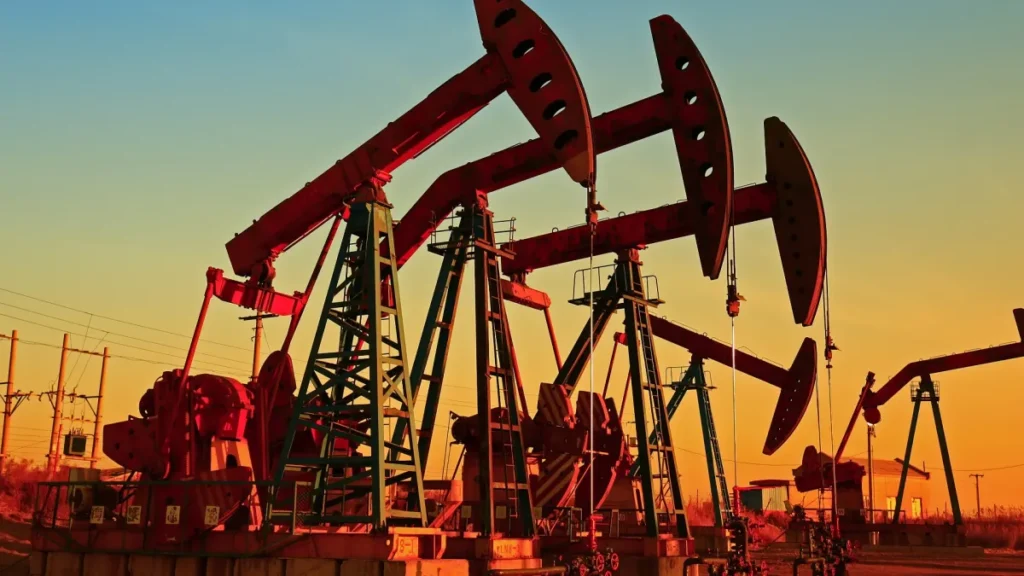Petroleum is a vital natural resource that plays a crucial role in various industries, especially in the energy sector. Also known as crude oil, petroleum is a complex mixture of hydrocarbons formed from the decomposition of organic matter over millions of years. The Energy Information Administration provides valuable data and insights into the production, consumption, and impact of petroleum on the global economy.
Overview of Petroleum
Definition and Composition of Petroleum
The term petroleum refers to a mixture of hydrocarbons that can be refined into various fuels and other petroleum products. This natural resource is primarily composed of crude oil and natural gas, extracted from underground oil reservoirs through drilling and extraction processes.
Significance of Petroleum in Energy Sector
Petroleum is a major source of energy worldwide, with its derivatives such as gasoline, fuel oil, and diesel fuel powering various transportation methods and industries. The gas industry heavily relies on petroleum for its production processes, using heat and pressure to extract and refine crude oil into usable products.
Types of Petroleum Products
The petroleum industry produces a wide range of products beyond just fuel, including lubricants, asphalt, and petrochemicals. Despite efforts to transition to renewable energy sources, petroleum remains a dominant energy source due to its high energy density and established distribution infrastructure.
Petroleum Extraction and Processing
Petroleum extraction and processing involve several key stages, from drilling and extraction of crude oil to refining and distillation processes, ultimately leading to the production of various petroleum products that fuel our modern lives.
Drilling and Extraction of Crude Oil
Drilling is a critical process in extracting crude oil from oil reserves deep beneath the Earth’s surface. It involves drilling deep into the ground to reach oil reservoirs, where crude oil is then extracted through a series of pumps and machinery. This extraction process requires advanced technology and expertise to ensure efficient and safe retrieval of the valuable resource.
Refining and Distillation of Crude Oil
Once crude oil is extracted, it undergoes refining and distillation processes at oil refineries. These processes involve separating the complex mixture of hydrocarbons in crude oil into various components like gasoline, fuel oil, and more through distillation and other refining techniques. Refining is crucial to transform crude oil into usable petroleum products.
Production of Petroleum Products
The refined petroleum products, such as gasoline, diesel, jet fuel, and petrochemicals, are essential for powering transportation, industries, and various everyday products. The production of these petroleum products is a crucial sector within the petroleum industry, contributing significantly to the global economy and meeting the world’s energy demands.
Environmental Impact and Concerns
Oil spills pose significant environmental threats, causing devastating consequences to marine and coastal ecosystems. When oil is spilled into the ocean, it coats marine life, seabirds, and shorelines, leading to long-term ecological damage and impacting local communities that rely on these resources for their livelihoods.
Oil Spills and Their Consequences
Oil spills have far-reaching consequences, affecting marine biodiversity, disrupting aquatic food chains, and contaminating water bodies. The cleanup efforts for oil spills are often challenging and expensive, with long-term impacts on the environment’s health and stability.
Impact of Petroleum Industry on Climate Change
The petroleum industry is a major contributor to climate change, primarily due to the combustion of fossil fuels like gasoline and fuel oil. The release of greenhouse gases, such as carbon dioxide, from burning petroleum products intensifies the greenhouse effect, leading to global warming and climate disruptions.
Alternatives to Petroleum for Sustainable Energy
Exploring and adopting alternatives to petroleum, such as renewable energy sources like solar, wind, and biofuels, is crucial for mitigating the environmental impact of the petroleum industry. Transitioning towards sustainable energy practices can help reduce greenhouse gas emissions, combat climate change, and promote a greener future.
Global Trends in Petroleum Usage
As the global demand for gasoline and petroleum products continues to rise, the reliance on petroleum as a primary energy source remains significant. With the transportation sector heavily dependent on gasoline and diesel fuels derived from crude oil, the demand for petroleum products shows no signs of slowing down.
Renewable Energy as an Alternative to Petroleum
Amid concerns over the environmental impact of petroleum usage, renewable energy sources offer a promising alternative. Solar, wind, and biofuels are increasingly being explored as sustainable options to reduce reliance on traditional petroleum-based energy sources and mitigate the effects of climate change.
Future Outlook for Petroleum Resources
Despite the growing shift towards renewable energy, petroleum will likely continue to play a crucial role in meeting global energy demands for the foreseeable future. With advancements in extraction technologies and ongoing exploration activities, the availability and accessibility of petroleum resources remain a key aspect in shaping the future of the energy industry.
